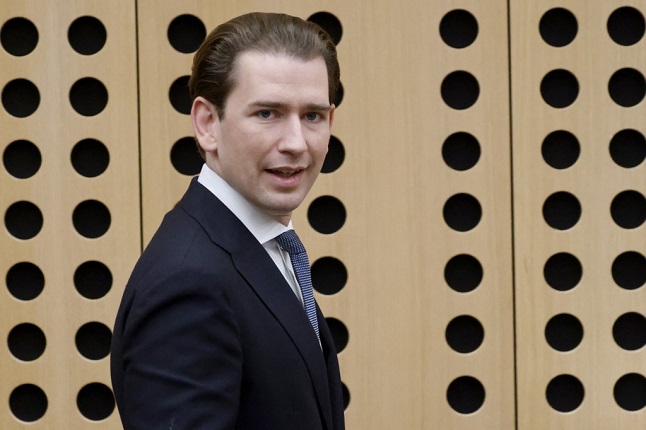The conservative, who became the world’s youngest democratically elected head of government aged 31 in 2017, announced during a press conference at 11:30 am that he is resigning as head of his party and as a lawmaker.
Kurz described the last few months as “an incredibly tense time” and a “rollercoaster of emotions”. He said the recent birth of his son made him realise he no longer wanted to be in politics.
In reference to the allegations against him, Kurz described himself as “neither a saint nor a criminal” but maintained that the allegations are false.
“A new chapter begins in my life that I can open today,” the 35-year-old conservative told reporters. “Above all, I look forward to spending time with my family and my child before I dedicate myself to new professional challenges in
the new year.”
“Today’s decision was not easy for me,” he told reporters, adding that having to fight corruption allegations against him had taken a heavy toll and diminished his “passion” for politics.
Tomorrow, Kurz will convene a meeting of the Federal Party Executive when he will hand over his role as ÖVP Chairman to August Wöginger.
Der Standard is already reporting that government circles have said Federal Minister of the Interior Karl Nehammer will become the next Federal Chancellor of Austria.
In a spectacular turn of events, the now 35-year-old Kurz stepped down as chancellor in October, shortly after he was implicated in a sweeping corruption investigation. He was replaced by former Foreign Minister Alexander Schallenberg, but remained head of his party, the conservative People’s Party (ÖVP).
He has repeatedly dismissed any allegation of wrongdoing and became a member of parliament after resigning as chancellor.
Tabloid newspaper Kronen Zeitung recently cited sources close to Kurz as saying that the recent birth of his son made him want to step back from politics. The report was confirmed by Austrian news agency APA.
READ ALSO: Comeback Kurz? Why you shouldn’t count Austria’s ex-chancellor out just yet
Kurz over the weekend announced on Facebook the birth of his son Konstantin, saying the family “was enjoying our time.”
The corruption scandal erupted in October when prosecutors ordered raids at the chancellery and the finance ministry while investigating allegations that Kurz’s inner circle used public money to pay for polls skewed to boost his image.
READ ALSO: Who’s who in Austrian politics?
Prosecutors also suspect that in return for the polls, and fawning coverage of Kurz, tabloid Österreich received lucrative public adverts. Prosecutors say that Kurz and nine other individuals, as well as three organisations are under investigation over the affair.
Kurz’s coalition with the far-right collapsed in 2019 when his ally became engulfed in a corruption scandal, leading to fresh elections. Those returned Kurz as chancellor, this time heading an administration with the Greens.
Following Kurz’s announcement, his own party colleagues as well as some opposition politicians expressed support. President Alexander Van der Bellen said he thanked Kurz in a telephone call for the “good and trustful cooperation”.
Kurz’s former deputy, Vice Chancellor Werner Kogler, said he had “great respect” for Kurz’s decision.
“Despite all the differences, we have achieved a lot together,” he tweeted.



 Please whitelist us to continue reading.
Please whitelist us to continue reading.
Member comments